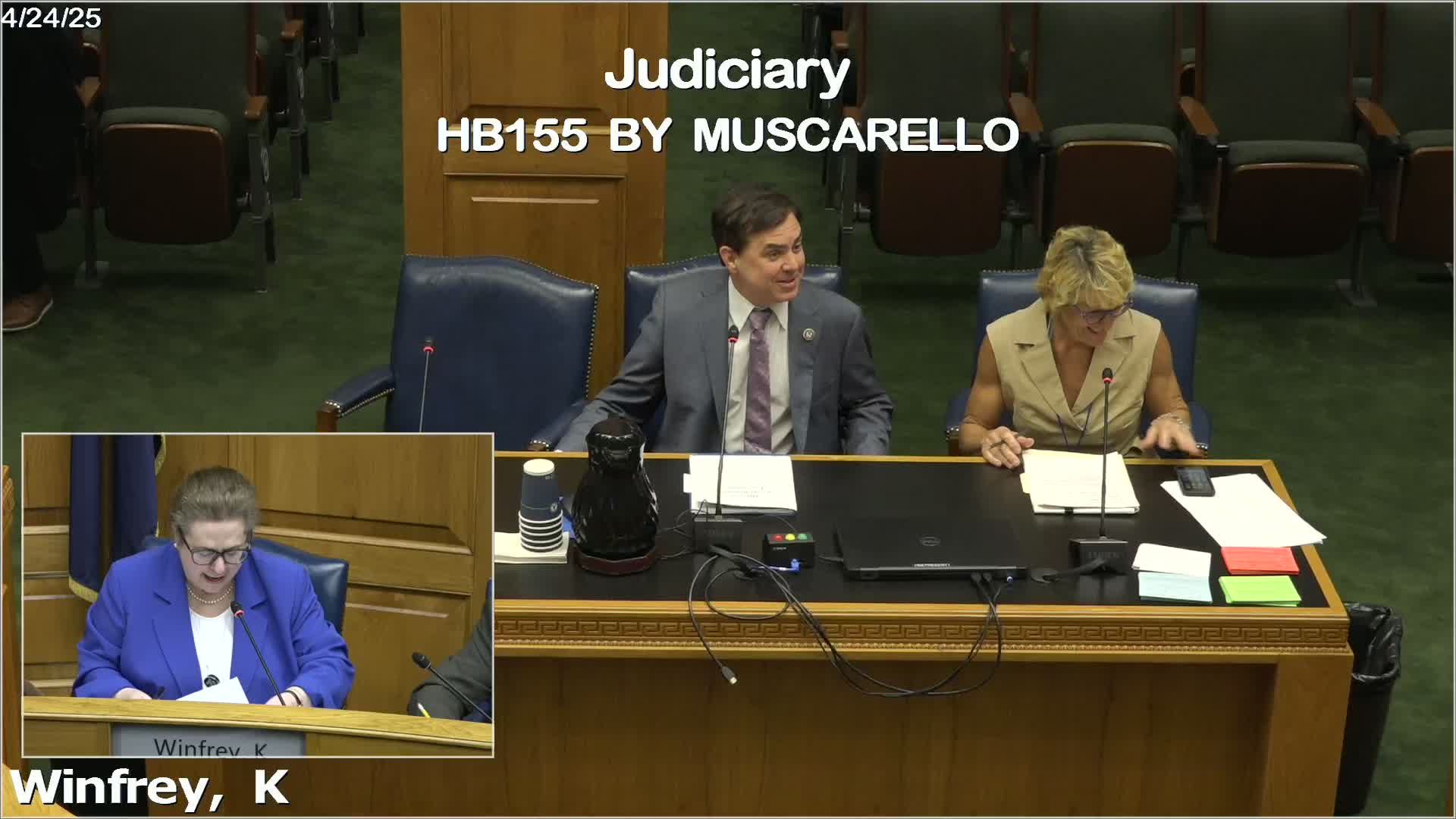House panel approves statewide caps on court reporter transcript fees
Get AI-powered insights, summaries, and transcripts
Subscribe
Summary
The House committee approved HB155 to standardize court reporter fees across Louisiana, capping civil non‑indigent transcripts at $5 per page and criminal/indigent transcripts at $3.50, while banning an unauthorized "sitting" fee and allowing tiered expedited rates.
The House committee voted to report House Bill 155 favorably after a lengthy discussion about a statewide shortage of certified court reporters and wide regional variation in per‑page fees.
Representative Tanner Muscarello, sponsor of the bill, said the measure is "spring cleaning" for statutes that now set widely different transcript and copy rates in different parishes. "Our court reporter fees throughout the districts are just all over the place," Muscarello said.
The bill sets a $5 cap per page for civil, non‑indigent transcripts and a $3.50 cap for criminal and indigent transcripts, and it disallows a so‑called sitting fee that some reporters had been charging. The measure also permits higher charges for expedited requests under defined tiers and adopts a technical change to set 32 lines per page.
Jennifer Egan of the Louisiana Supreme Court Research and Development Department told the committee the bill aims to stabilize pay so reporters remain in place across rural and urban districts. "We know the Court Reporter Board is losing about 100 reporters a year," Egan said, describing an average reporter age of about 55 and widespread difficulty recruiting new reporters.
Opponents cautioned the change could increase local costs. Guy Cormier of the Police Jury Association said the fiscal note is silent on immediate state costs but warned the criminal‑transcript cap could increase local expenditures paid from local criminal court funds. "When you tell them they can charge up to $5, guess what they're going to do," Cormier said.
Peter Gilberti of the Louisiana Court Reporters Association, who filled a card for the record but did not testify, described typical official court reporter salaries as ranging roughly from $40,000 to $60,000 depending on the parish and said the proposal generally aligns litigant and court needs.
After adopting technical amendments and a roll call, the committee reported the bill favorably by a vote of 10 yeas and 4 nays.
The bill now moves to the full House for further consideration.
